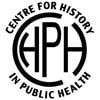The Public Health Humanities network advocates for the importance of arts and humanities research and education within public health; works to overcome barriers to their inclusion; and facilitates connections amongst and between arts and humanities professionals and the wider public health community.
The network hosts a range of seminars, workshops, and other events.
The Public Health Humanities network responds to calls for the integration of a wider range of disciplinary perspectives within public health, including long-standing work to incorporate history into public health education. Such initiatives have made a powerful case for the value of the arts and humanities as disciplines that develop and deepen understanding, instil curiosity and humility, provide powerful evidence, and generate better public health policy and practice. Public health declares itself to be highly multidisciplinary, but it still remains rare to see concepts, methods, and insights from the humanities integrated into public health research, publications, curricula, and practice.
Our aims
The network therefore aims to:
- advocate for the importance of arts and humanities within public health research, education, and practice;
- identify and work to overcome the barriers that prevent the integration of arts and humanities approaches into public health;
- facilitate stronger connections amongst arts and humanities professionals involved in public health, and between arts and humanities scholars and the wider public health community.
We adopt a broad understanding of the humanities which includes (but is not limited to) history, human geography, languages and linguistics, law, literary studies, philosophy, and theology, as well as the visual and performing arts. We also understand public health in broad terms, to include any collective organised efforts to prevent illness and promote health at population level. Anyone interested in the intersection of humanities and public health is welcome to join the network, irrespective of professional or disciplinary background.
You can find out about our events and activities, join our mailing list or get in touch via email: janet.weston@lshtm.ac.uk – we’d love to hear from you.
The network is funded by the Wellcome Trust, as part of the University Award ‘Ethics and British public health law 1920-2020’.
Janet Weston (LSHTM) is a historian of health and law, and Director of the Centre for History in Public Health. She is the Public Health Humanities Network lead at LSHTM.
Amanda Caleb
Professor
Amanda Caleb is professor of medical humanities at the Geisinger Commonwealth School of Medicine, Pennsylvania.
John Coggon
Professor
John Coggon is professor of law at the University of Bristol, researching the intersections of law, policy, and health, and ethics advisor to the World Health Organisation.
Hannah Elizabeth
Cultural Historian
Hannah Elizabeth is a cultural historian of sexuality, emotions, and childhood.
Allan González Estrada
Professor
Allan González Estrada is professor of philosophy and bioethics at Universidad Nactional Costa Rica.
Rebecca Garden
Associate Professor
Rebecca Garden is associate professor of public health at SUNY Upstate Medical University, with research expertise in literary studies and disability studies.
Thomas Hehlmann
Lecturer
Thomas Hehlmann is lecturer in public health and health literacy at the University of Bremen, developing the first health humanities course in Germany.
Adil Mohammed Javed
CEO and Artistic Director of Alchemy Arts
Adil Javed is CEO and Artistic Director of Alchemy Arts, a social enterprise aiming to empower communities through arts and creativity.
Haejoo Kim
Assistant Professor of English Language and Literature (Seoul National University)
Haejoo Kim is Assistant Professor of English Language and Literature at Seoul National University, with a focus on Victorian ‘alternative health’ practices and opposition to mainstream medicine.
Samia Latif
Public health consultant
Samia Latif is a public health consultant at the UK Health Security Agency, Assistant Academic Registrar at the UK Faculty of Public Health, and is passionate about promoting health through the arts.
Gabriel Lawson
Research Associate
Gabriel Lawson is a Research Associate at the Policy Institute, King’s College London, working on policy relating to mental health.
Conor Francis Macis
PhD candidate
Conor Macis is a PhD candidate in philosophy at the University of Bristol, working on global health law and antimicrobial resistance.
Gareth Millward
Historian
Gareth Millward is a historian of health and welfare policy at the University of Southern Denmark.
Michelle V Moncrieffe
Lecturer
Michelle Moncrieffe is a lecturer in the English Department at the University of Maryland, and leads the NAME Project which uses narrative research to address racism in dental care.
Manon Parry
Historian
Manon Parry is a historian of medicine at University of Amsterdam and Vrije Universiteit Amsterdam and an exhibition curator.
Savita Rani
Physician
Savita Rani is a physician training in public health and preventive medicine in Canada, with a personal visual arts and writing practice.
Hattie Ruysen is a midwife, researcher, and PhD candidate at LSHTM.
Lise Saffran
consultant and associate teaching professor
Lise Saffran is a consultant and associate teaching professor at the University of Missouri, with a background in public health and creative writing; narrative and storytelling.
Farhang Tahzib
Chair of UK Faculty of Public Health committee
Farhang Tahzib is the chair of UK Faculty of Public Health committee on ethics and law.
Carla Tsampiras
Senior Lecturer
Carla Tsampiras is a historian and Senior Lecturer in the Primary Health Care Directorate at the University of Cape Town.
Erica Nelson
Historian and Anthropologist
Erica is a historian and anthropologist with two decades of experience working on community-based public health, health systems development, sexual and reproductive health and rights, and the politics of knowledge in health research.
Join our mailing list to find out about future events and activities as soon as they are announced.
Conference: Research at the intersection of public health and the humanities
When: 19 and 20 September 2024
Where: The University of Southern Denmark, Odense
What can public health policy and practice gain from arts and humanities research? Indeed, should the two be considered as separate? How and where do public health and the humanities combine, and what can be done to promote further interaction? We look forward to exploring these questions in Denmark in September!
Webinar: Arts and humanities for good public health
In partnership with the UK Faculty of Public Health, we hosted a roundtable addressing the importance of the arts and humanities within public health education and training in January 2024.
Watch the recording below.
You can also review some of the resources mentioned in the discussion and online chat.
- 2023-24 Seminar Series: Historical perspectives on ethics, morals, and values in public health
Running from April 2023 to April 2024, these seminars featured scholars from around the world tackling everything from the quarantining of slave ships to the moral economy of the NHS:
- The need for historical fluency in public health law and ethics, with Daniel Goldberg (9 June 2022)
- Reproductive injustice in mid-20th century Britain and America, with Ariel Hart and Michael Lambert (26 April 2023)
- Masks and myopia: politics and protection in public health campaigns, with Yixue Yang and Sharrona Pearl (11 May 2023)
- Inequality and expendability in early public health, with Elise Mitchell and Mathieu Corteel (30 May 2023)
- Moral frameworks for public health, with Nathalie Egalité and Allan Arturo González Estrada (7 June 2023)
- Vaccine mandates and exemptions, with Maria Teresa Marangoni and Jonathan Kuo (27 June 2023)
- West African views of ethics and fairness in healthcare, with David Bannister and Ayodeji Adegbite (4 July 2023)
- Health professionals and vaccine mandates: a New Zealand case study, with Linda Bryder (18 October 2023)
- Humans, animals, and health, with Susan Iseyen and Jane Davidson (14 November 2023)
- Disability history and policy, with Paul van Trigt and Linda Steele (21 November 2023)
- Power and public health in colonial Nigeria, with Adebisi Alade and Olúwaṣeun Williams (27 November 2023)
- British health systems and their values in the late 20th and early 21st century, with Benjamin Hunter and Paul Atkinson (13 March 2024)
- A Good Mother Enters the Clinic: How Dutch Preventive Child Health Care Ordered Everyday Lives, 1900-1940, with Noortje Jacobs and Martijn van der Meer (23 April 2024)
Networking for humanities scholars
We will be focusing on small working group activities during 2024: Find out more on our get involved page.
Here you can find further reading on the humanities and health, and links to our partners and other groups with similar interests.
BMJ Medical Humanities blog series
BMJ Medical Humanities is publishing a series of blogs by network members in summer 2024. We’ll add links here as they come out!
- Talking about Menopause and Health with the MenoMakers Craft Group, by Jessica Hammett
Further reading
- 'A recipe for action: using wider evidence for a healthier UK'. Health Foundation; 2018
- ‘Improving the health of the public by 2040’. Academy of Medical Sciences; 2016
- Berridge, Virginia, ‘Infiltrating history into the public health curriculum’, Journal of Public Health, 40:4 (2018), pp. 886–890
- Berridge, Virginia, ‘History does have something to say’, History Workshop online (2020)
- Moran, Joe, ‘To the Anxious Humanities Scholar’, Critical Quarterly, 63:2 (2021), pp. 4– 23
- Saffran, Lise, ‘’Only connect:’ the case for public health humanities’, Medical Humanities, 40:2 (2014), pp.105-110.
- Weed, Douglas, ‘Epidemiology, the humanities, and public health’, American Journal of Public Health, 85:7 (1995), pp. 903-1022
Partners, friends of the network, and other groups and societies
- Behavioural and Cultural Insights Unit, World Health Organisation Europe.
- Centre for History in Public Health: LSHTM’s centre for the historical understanding of public health policy and practice.
- Faculty of Public Health: the membership organisation for public health professionals in the UK.
- Applied Medical History working group: part of the Consortium for History of Science, Technology and Medicine.
- Ends of Knowledge and the Medical Humanities: a research network bridging the medical humanities and critical university studies.
- Translational Humanities for Public Health: A digital humanities archive in response to the Covid-19 pandemic.
Public health humanities reading group
Are you interested in joining an informal reading group, to discuss new or key texts and to meet other folks interested in public health and the humanities?
All welcome to join our new reading group, getting underway in May 2024. Meetings are scheduled for:
- Tuesday 28 May
- Wednesday 18 June
- Thursday 25 July
Meetings will take place online, and in person in London. To find out more, please get in touch with Conor Macis and Gabriel Lawson.
Teaching arts and humanities in public health: working groups
We have three small working groups developing an online resource library for arts and humanities education in public health. if you’re interested in this, please email Janet Weston.
Humanities research with(in) public health
We’re planning a conference focusing on humanities research that engages with current public health research and practice. This is likely to take place in Denmark in September 2024: watch this space!
Humanities and public health - an exploratory workshop
Online, Monday 22 May 2023
The network held its inaugural workshop online on Monday 22 May 2023.This workshop brought together humanities researchers whose work engages with the issues, problems, or methods of public health, to discuss two main themes: the integration of humanities disciplines into public health research and practice, and the role of the humanities in public and community engagement and involvement.
If you’d like to stay up to date with news of future activities and events, please join our mailing list!
Here you can find some examples of public health projects that include (and sometimes centre) humanities methods and approaches.
- Re-authoring meat consumption narratives: combining historical, cultural and public health perspectives
-
This project is a collaboration between researchers from the Humanities, Social and Behavioural, and Medical faculties at the University of Amsterdam. It harnesses the diverging areas of expertise to understand the predominant role of meat in past and contemporary diets.
Find out more about this project (see under ‘Midsize projects)
- Distorted transmission: AIDS, minority stress and understanding Dutch male homosexual minorities’ collective past
-
This project examines how the self-appreciation of (male) homosexual minorities in the Netherlands has been shaped by the HIV/AIDS-crisis of the 1980s. Recent literature on ‘minority stress’ demonstrates high (and rising) levels of mental health issues and suicide attempts among LGBTQ+ people despite improving social conditions. Through archival research and interviews with long-time HIV/AIDS survivors, this project brings together researchers from history and sociology to investigate how the collective experience of HIV/AIDS has affected homosexual men’s self-appreciation from the 1980s to present.
Read more information on the Distorted transmission project.
- Questioning Vaccination Discourse
-
This project applies corpus-based discourse analysis to discussions about vaccinations in the UK national press, parliamentary debates, and social media, to gain a better understanding of how the public sees and understands vaccination. It brings together a range of experts in linguistics in partnership with Public Health England, the UK Department of Health and Social Care, and Department of Digital Culture Media & Sport, to inform future public health campaigns.
Read more information on the Questioning Vaccination Discourse project.



